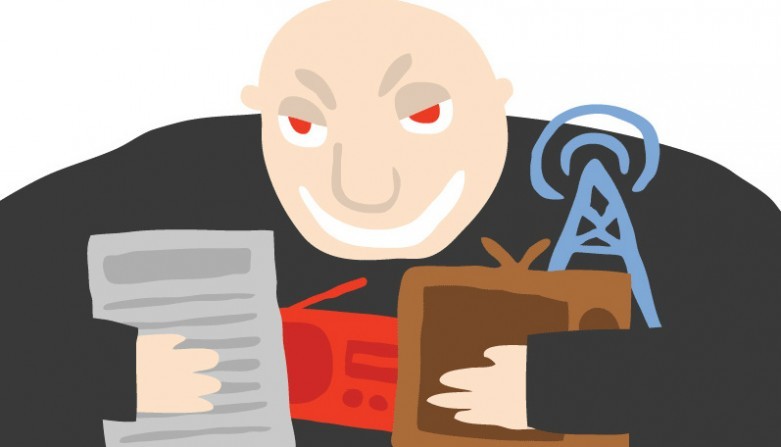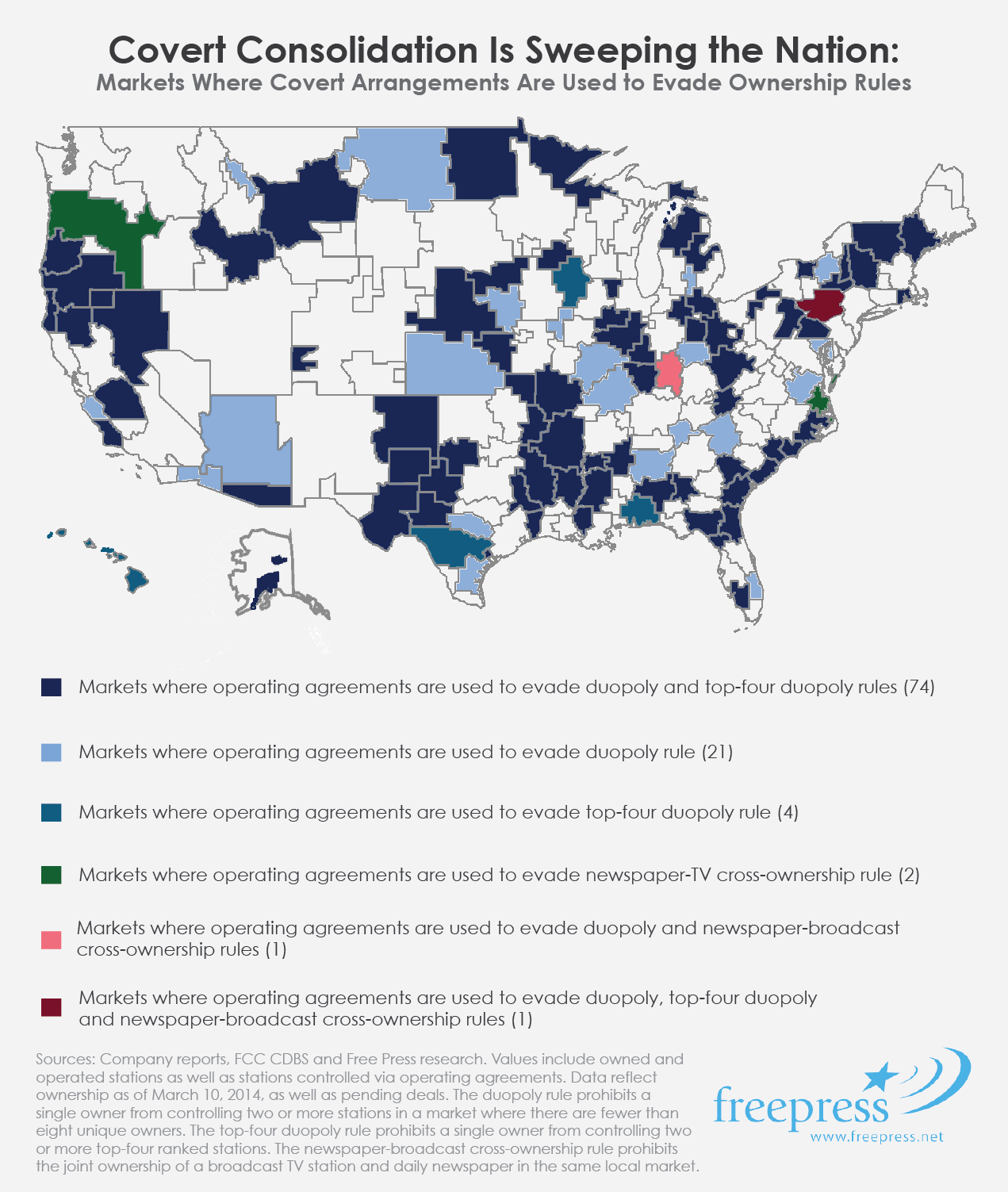
The FCC's Big Move to Curb Media Consolidation
The Federal Communications Commission is on the verge of rolling back consolidation in TV broadcasting for the first time in three decades.
On March 31, the agency is expected to close a loophole that has allowed companies to evade federal ownership limits. If this happens, companies like Raycom and the Sinclair Broadcast Group could be forced to sell off stations and open up the airwaves to more diverse voices.
Free Press research has shown how these dangerous deals are destroying local news — and fueling the biggest wave of media consolidation in decades. We recently testified in Congress about the significance of the FCC’s move to examine these deals.
Here’s what you need to know about the FCC’s decision to rein in media consolidation.
What’s Happening
At its March 31 meeting, the FCC will vote on a proposal that would limit the use of “Joint Sales Agreements.” JSAs are part of a suite of shady outsourcing agreements companies use to control as many as four stations in one community.
That kind of consolidated ownership would normally be illegal. But companies like Gannett, Nexstar, Raycom, Sinclair and Tribune have set up shell corporations that they then sell some of their stations to — while maintaining control of much of the content and revenue. The letterhead may have a different logo but behind the scenes it’s just one company pulling the strings. JSAs allow one station to sell ads for a competing station, but these deals almost always end up as de facto consolidated ownership.
That’s why we’ve dubbed these sneaky deals “covert consolidation.” There are well over 100 examples of these types of deals around the U.S., so the FCC’s rule change would have a broad impact.
What Are the Rules
JSAs and similar agreements evade a number of the FCC’s ownership rules. According to Free Press research, companies use these agreements to evade the rules in nearly half of all U.S. media markets. In 78 communities, broadcasters have formed otherwise illegal duopolies between two of the top-ranked stations.
Here are the rules these companies have been violating:
- Duopoly Rule: prohibits a single owner from controlling two or more stations in a market where there are fewer than eight unique owners
- Top-Four Duopoly Rule: prohibits a single owner from controlling two or more top four-ranked stations in a given community
- Newspaper-Broadcast Cross-Ownership Rule: prohibits the joint ownership of a broadcast TV station and daily newspaper in the same market
The FCC has tried to gut the 30-year-old newspaper-broadcast cross-ownership ban three times in the last eight years, but we’ve blocked them in court and in the court of public opinion. The agency recently announced that it now has no intention of relaxing this ban, representing another important win for the public interest.
Why It Matters
We need an informed public for our democracy to function. Giving a handful of corporations too much control over the media is dangerous — especially since the airwaves belong to the people.
Our policies have historically prioritized diverse, local and competitive media. In Associated Press v. United States, the Supreme Court upheld the idea that the First Amendment “rests on the assumption that the widest possible dissemination of information from diverse and antagonistic sources is essential to the welfare of the public.” This is why we have limits on how much control one person or company can have over the media.
Our research has shown that as consolidation soars, the number of diverse owners plummets. Consolidation raises barriers to entry for new owners and makes it harder for existing small owners to compete for ad dollars. If the FCC can force the biggest TV companies to divest some of their stations, we should do everything we can to ensure these broadcast licenses go to local owners who represent the diversity of their communities.
The FCC’s decision to take on the broadcasters is historic. But the broadcast lobbyists and their friends aren’t taking this lying down. We have one week to make sure the FCC sticks to its guns and stands up for the public interest.
Check out the map below to learn more about the impact of covert consolidation.
